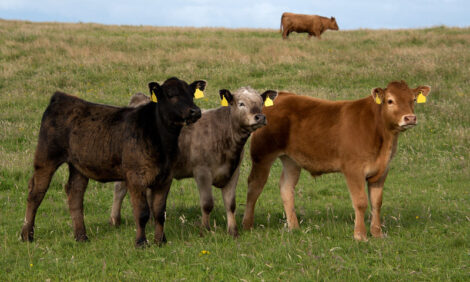



Global Agriculture Faces Decade of Flat or Falling Prices
GLOBAL - World Prices for food will remain flat or could fall over the next 10 years because of the current growth in agricultural production.The World Trade Organisation Public Forum, Trade Works, heard last week (30 September – 2 October) that agricultural production has been growing, particularly in Africa, affecting the movement of food prices.
The first sessions of the forum, organised by the Kenya Human Rights Commission, the International Union of Food, Agricultural, Hotel, Restaurant, Catering, Tobacco and Allied Workers' Associations (IUF), the Centre for Equity Studies of India and COAST of Bangladesh heard how trade rules need to be reformed to address the growing concerns held by small-scale producers.
The forum heard that the agricultural sector in Africa, which is a mainstay of most of the continent’s economies, is facing a number of challenges.
Public stockholding and initiatives such as the National Food Security Act in India designed to support domestic consumption are playing an important role in food production and need to be supported rather than exports.
The forum called on the World Trade Organization to back such programmes as no-trade distorting as the G33 group of developing countries had already proposed.
The meeting called for agricultural subsidies and safeguard mechanisms to be included in the forthcoming Nairobi Ministerial Conference.
During the forum, farmers’ representatives in the World Farmers’ Organization, the United Nationals Economic Commission for Europe and the UN Food and Agriculture Organization called for farmers’ opinions to be taken into consideration when standards are being set.
The farmers’ representatives called for decisions to be made to drive farms as businesses and initiatives to help improve the efficiency of farms while at the same time the farms have to implement a number of varying standards.
The meeting heard that farmers need to be at the forefront in bridging the gap between food security, farmer security, trade policy and agricultural policy.
The delegates heard that farmers are facing developing challenges of a decline and real terms of prices, increases in trade volumes and changing consumer demands.
In Asia, the forum heard that the food chain had to plug into the global agricultural value chains in order to boost the regions development.
However, the sector in Asia faces many challenges when exporting because of concerns over mislabelling of good destined for export, bacterial contamination of products and because of the use of excessive or dangerous additives, particularly in China, Viet Nam, Thailand and Indonesia.
However, the meeting heard that the Asian agricultural sector needs to promote agri-food export in order to boost economic development, which at the same time meeting international standards. In doing this, the sector in Asia will more readily be accepted into the global value chains.
TheCattleSite News Desk


